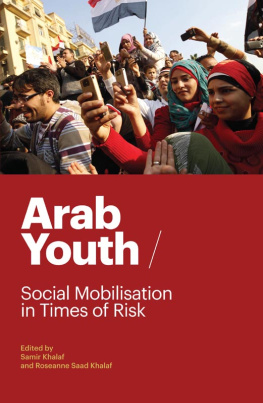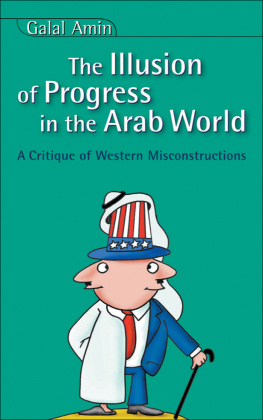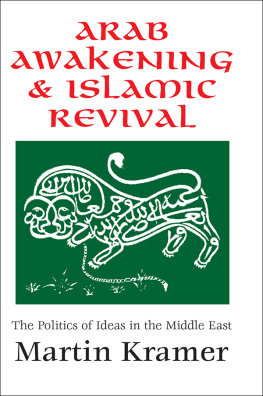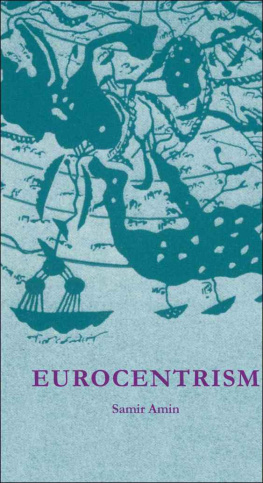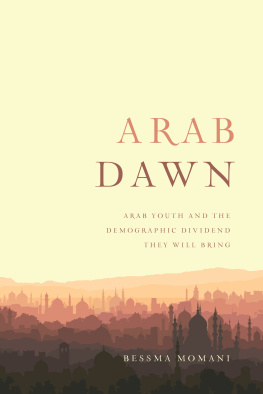Samir Kassir - Being Arab
Here you can read online Samir Kassir - Being Arab full text of the book (entire story) in english for free. Download pdf and epub, get meaning, cover and reviews about this ebook. year: 2013, publisher: Verso, genre: Politics. Description of the work, (preface) as well as reviews are available. Best literature library LitArk.com created for fans of good reading and offers a wide selection of genres:
Romance novel
Science fiction
Adventure
Detective
Science
History
Home and family
Prose
Art
Politics
Computer
Non-fiction
Religion
Business
Children
Humor
Choose a favorite category and find really read worthwhile books. Enjoy immersion in the world of imagination, feel the emotions of the characters or learn something new for yourself, make an fascinating discovery.
- Book:Being Arab
- Author:
- Publisher:Verso
- Genre:
- Year:2013
- Rating:5 / 5
- Favourites:Add to favourites
- Your mark:
- 100
- 1
- 2
- 3
- 4
- 5
Being Arab: summary, description and annotation
We offer to read an annotation, description, summary or preface (depends on what the author of the book "Being Arab" wrote himself). If you haven't found the necessary information about the book — write in the comments, we will try to find it.
Being Arab — read online for free the complete book (whole text) full work
Below is the text of the book, divided by pages. System saving the place of the last page read, allows you to conveniently read the book "Being Arab" online for free, without having to search again every time where you left off. Put a bookmark, and you can go to the page where you finished reading at any time.
Font size:
Interval:
Bookmark:

BEING ARAB
Samir Kassir
Translated by Will Hobson
with an Introduction by Robert Fisk

CONTENTS
ON JUNE 2 2005, the bloody hand has reached out to Lebanon once more, striking down one of its most prominent journalists and one of the most vociferous and bravest critics of the Syrian regime.
Samir Kassir was the best known columnist on the Lebanese daily newspaper An Nahar, a valued member of the opposition, newly married and - like so many of us in Beirut living on the happy assumption that with Syrias troops and intelligence officers withdrawn from Lebanon, he had nothing to fear.
So who murdered Samir Kassir?
He always left home at 10.30am and I saw him walking across the street, a female neighbour told me on the day of Kassirs assassination. He always left home at the same time. He opened the door of his car, sat inside and started the engine. Then the car blew up.
Close inspection of Mr Kassirs Alfa-Romeo, registration number 165670, showed clearly the blast came from beneath the drivers seat. It tore open the roof, blasted out the drivers door, smashed the steering column and hurled Mr Kassir on to the passenger seat. The ignition apparently detonated the bomb.
It was a shock that no one in Beirut expected except, of course, the assassins. In February 2005, Germanys top detective, Detlev Mehlis, had gone with his UN team to investigate the murder of the former prime minister Rafik Hariri. We all thought that Lebanons assassins were in their rabbit holes, fearful of arrest.
But no, they are still on operational duty, still in killing mode. Nassib Lahoud, the opposition MP and friend of Kassir he may be the next Lebanese president was in tears when I spoke to him beside Mr Kassirs wrecked car. He talked about criminal hands, about the intelligence apparatus who he blamed for the assassination. The only word he didnt use was Syria.
So who murdered Samir Kassir?
Just before his resignation earlier in 2005, the pro-Syrian head of Lebanons General Security Service, Jamil Sayed, hysterically offered to arrest himself if he was blamed for Hariris murder. Mr Kassir had written a brutal article the next day, pointing out that it was good to see those who had threatened journalists and who had censored journalists now showing their own fear of justice. Rustum Ghazaleh, who was head of Syrian military intelligence in Lebanon, screamed abuse at the journalist.
So who murdered Samir Kassir?
In 2001, after a series of articles excoriating the Syrians and pro-Syrian Lebanese intelligence operatives, airport security confiscated his passport on his return from Amman, claiming they wanted to verify the conditions upon which it was obtained.
Mr Kassir was of Palestinian origin but had travelled on his legally issued Lebanese passport on fourteen recent occasions. In 2001, he complained he was under surveillance and his neighbours claimed they were interrogated by intelligence officers.
So who murdered Samir Kassir?
Nassib Lahoud had no doubts about the reasons for the murder. Criminal hands did not target Samir because he was a brilliant journalist, he said. They did not target Samir because he was a brilliant intellectual. They have targeted Samir for being one of the leaders of Lebanons spring, because he was part and parcel of the opposition. So the battle with the intelligence apparatus is not over. This assassination is meant to tell us that Lebanons march towards democracy should not be an easy ride.
Mr Kassir, who had two children from a previous marriage, had only recently married Giselle Khoury, a journalist on the Arabiya satellite channel. Why dont they leave us alone now? one of their young neighbours asked me. Why must they go on using this methodology of murder? We have to stop this. Are they trying to drive all the young people out of Lebanon?
In the week before Kassirs murder, An Nahar had picked up a story that had been running in its rival paper, Mr Hariris daily Al-Mustaqbal, and named three prominent Syrian intelligence officers who it claimed had - in defiance of UN Security Council resolution 1559 returned to Lebanon to interfere in elections.
Identifying Syrias spooks is not a healthy thing to do. Their names were given as: Brigadier General Mohamed Khallouf who was the senior Syrian intelligence officer in Beirut until last April - Nabil Hishmeh and Khalil Zogheib, who used to run Syrias secret services in Tripoli. Syria denied the men were here. Mr Kassirs last column on the Friday before his death - was an attack on the Syrian Baath party, headlined Mistake after mistake.
So who murdered Samir Kassir?
Robert Fisk
3 June 2005
IT S NOT PLEASANT being Arab these days. Feelings of persecution for some, self-hatred for others; a deep disquiet pervades the Arab world. Even those groups that for a long time have considered themselves invulnerable, the Saudi ruling class and Kuwaiti rich, have ceased to be immune to the enveloping sense of malaise since a certain September 11.
The picture is bleak from any angle but even more so when compared with other parts of the world. Apart from Sub-Saharan Africa (the stage for an altogether different collision between potential and reality, expectation and achievement, anxiety and frustration, past and present), the Arab world is the region where men and, to an even greater extent, women have the least chance of thriving. Arab itself is so impoverished a word that its reduced in places to a mere ethnic label with overtones of censure, or, at best, a culture that denies everything modernity stands for.
Yet the Arab world hasnt always suffered such a malaise. Apart from the supposed golden age of ArabMuslim civilization, there was a time not so very long ago when Arabs could look to the future with optimism. The cultural renaissance of the nineteenth century, the famous nahda, illuminated many Arab societies with modernity in a way that often went beyond the westernized, or westernizing, elites. In the twentieth century, one of these societies, Egypt, founded the worlds third-oldest film industry, while from Cairo to Baghdad and from Beirut to Casablanca painters, poets, musicians, playwrights and novelists shaped a new, living Arab culture. These innovations were mirrored by undeniable changes in the social sphere, the most spectacular, revolutionary and now debated being womens decision to give up the veil. In politics likewise, the mobilization of societies enabled Arabs to play a prominent role in international affairs: Nassers Egypt, for instance, one of the pillars of Afro-Asianism and the subsequent Non-Alignment movement; independent Algeria, the driving force of the entire African continent; or the Palestinian resistance which was called on to further the cause of democratic rights without succumbing to the ideology of victimhood now so prevalent.
So what checked this momentum, which, even if it didnt achieve complete success, still heralded a better and seemingly attainable future? How did we become so stagnant? This state may be more intellectual and ideological than material but it still makes us believe that we have no future other than that proposed by a morbid fundamentalism. How has a living culture become discredited and its members united in a cult of misery and death? The following book aims to offer elements of a response to these questions and, by implication, to convey the possibility of finding a way out of the crisis.
This book makes no claim to be a political programme, nor for that matter the report of an expert witness. It is first and foremost the views of an Arab intellectual, such as could be put forward anywhere in the world: in Paris or Damascus, London or Beirut, Cairo or Casablanca, Algiers or as has recently become the case Baghdad. In saying this, however, I am not trying to hide behind a consensus of any sort. There is no consensus and every intellectuals own political identity informs his or her arguments. Before proceeding, therefore, I must first declare my identity.
Next pageFont size:
Interval:
Bookmark:
Similar books «Being Arab»
Look at similar books to Being Arab. We have selected literature similar in name and meaning in the hope of providing readers with more options to find new, interesting, not yet read works.
Discussion, reviews of the book Being Arab and just readers' own opinions. Leave your comments, write what you think about the work, its meaning or the main characters. Specify what exactly you liked and what you didn't like, and why you think so.




